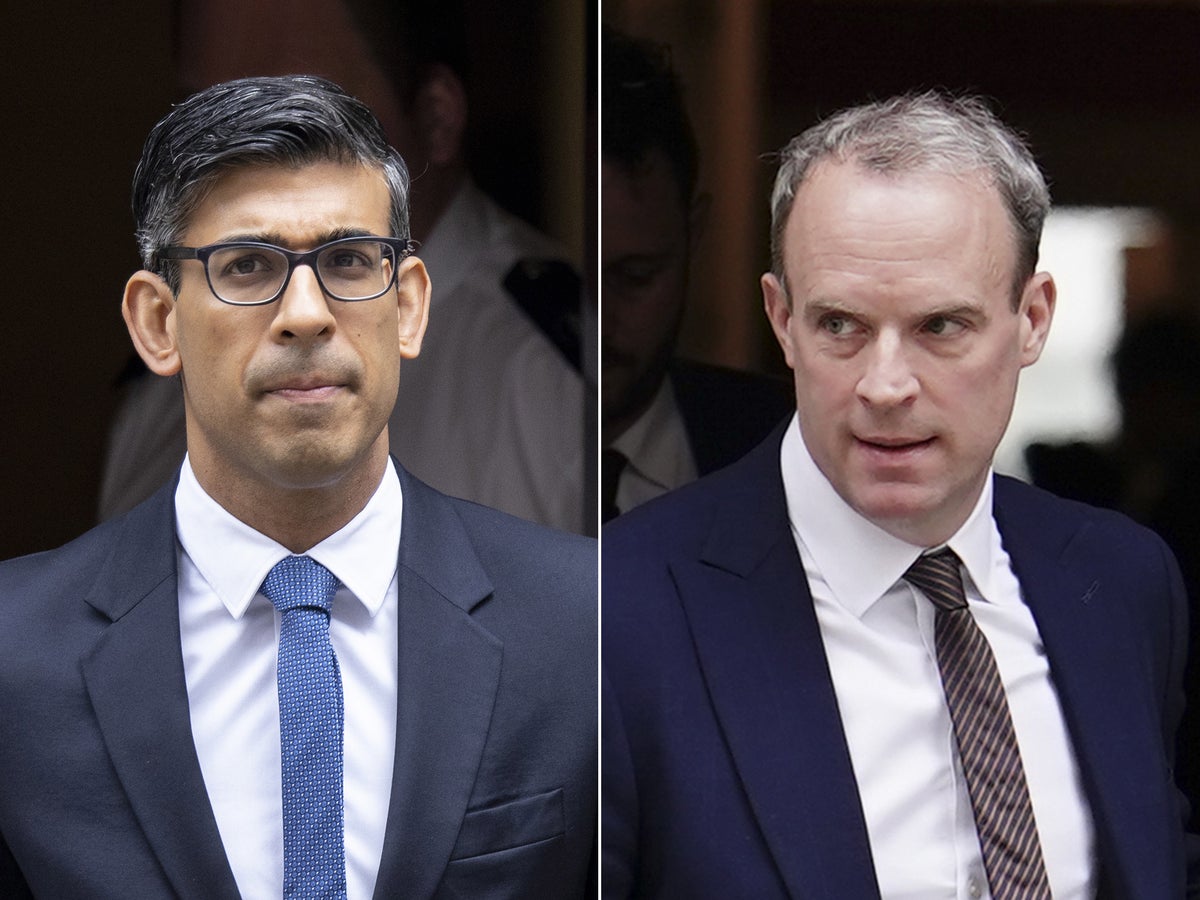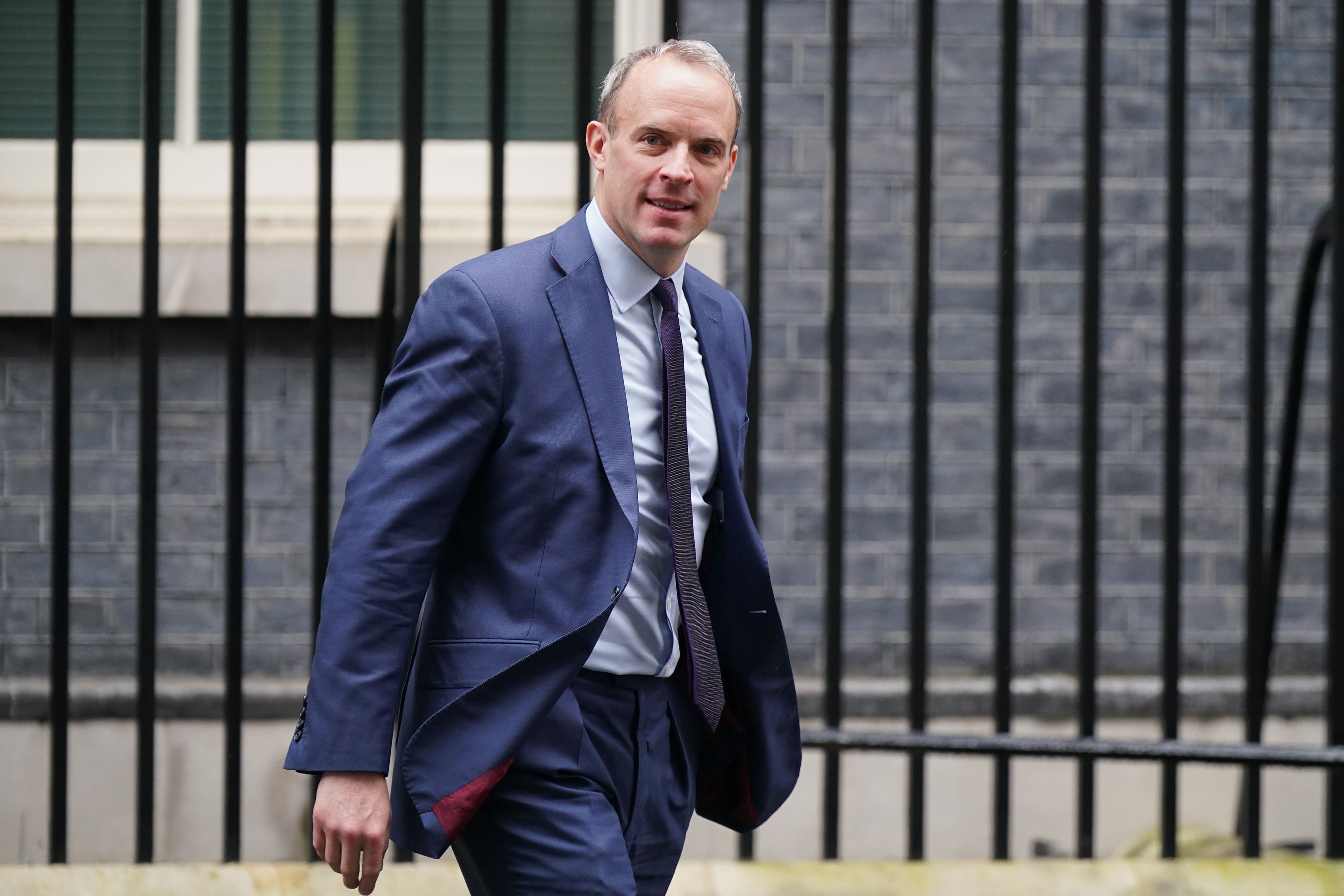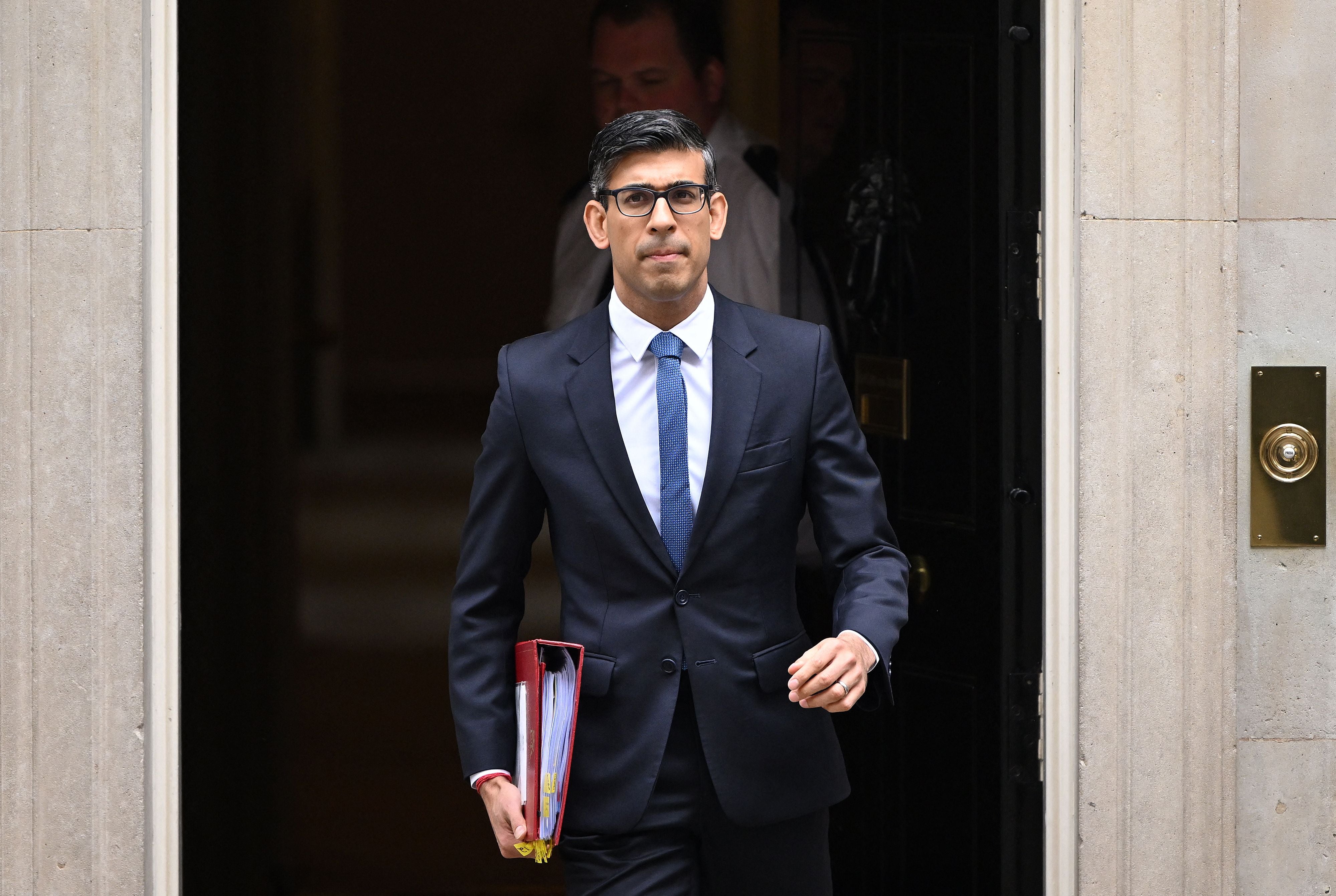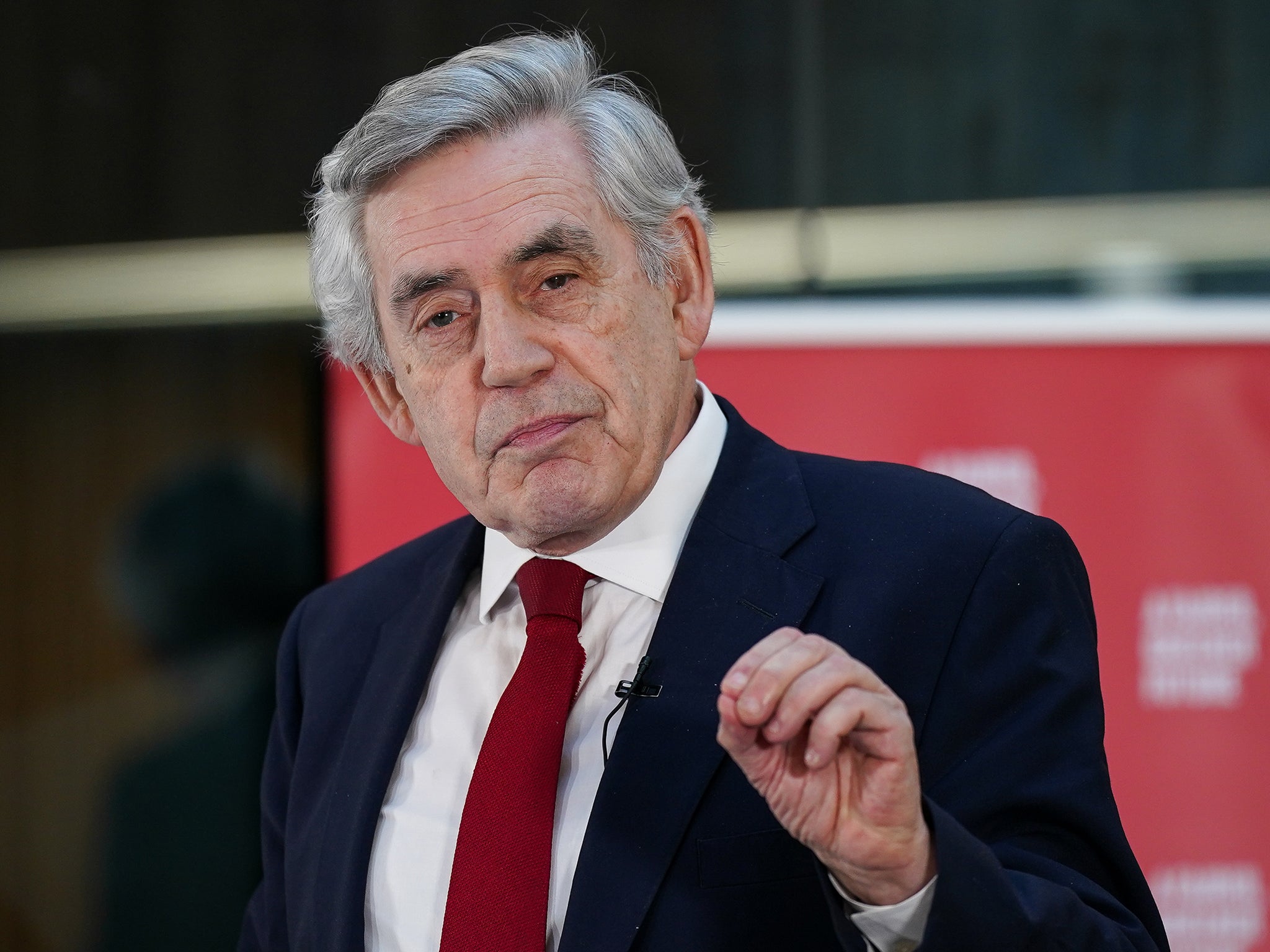
A Tory peer who is leading a government review into how the civil service operates has called for a greater “politicisation” of Whitehall through allowing ministers more power to appoint their own officials.
Francis Maude said the system needs to be less “mealy-mouthed about ‘politicisation’” in the wake of Dominic Raab’s resignation and the claims made by Mr Raab that civil service “activists” had been working against him.
It comes as Rishi Sunak was accused by Tory MPs of betrayal over the Raab scandal, with one complaining that the PM “definitely doesn’t have anyone’s back”.
Mr Raab quit on Friday after the probe into bullying accusations upheld two of the claims against him and found that he had acted in an intimidating and aggressive way that could have amounted to bullying.
Writing in The Observer, Lord Maude said that there will be more cases like Mr Raab’s, in which “frustrations boil over”, and suggested ministers could be given more say in the appointment of civil servants.
“We need a much more robust culture, with less groupthink, more rugged disagreement, and the confidence to both offer challenge and accept it,” the former Cabinet Office minister said. “That includes accepting candid feedback.”
Lord Maude pointed to other governments, with similar civil service systems, that have had more success in balancing impartiality and continuity, as well as ministers’ need for officials to be responsive.
“In France, permanent civil servants often have overt political affiliations, and it causes few problems. In Australia, permanent civil servants in ministers’ private offices are released from the obligations of political impartiality, and can take part in party political activity,” he said.
“We don’t need to go that far, but the key, as always, is transparency and pragmatism. Without a much closer alignment between accountability and authority, we will see tensions build and relationships fracture.”

It came as Mr Raab continued to hit out at the “activist” civil servants he said he had been targeted by, claiming he was the victim of a “coordinated” and “politicised attack”.
Speaking to The Sun on Sunday, he agreed with the reporter’s summary that his accusers had “smelt blood”. He said: “It looks like it was coordinated and concerted and therefore a politicised attack rather than a genuine raising of concerns through proper process in the proper way.”
Amid claims that Mr Sunak had hung Mr Raab out to dry, Sir John Redwood told The Sunday Telegraph it was “a great pity that the prime minister accepted Dominic Raab’s resignation”, and urged the PM to “support all those who wish to get things done”.
Another senior Tory told the newspaper: “The whole policy of Rishi’s team now seems to be that Rishi must never be caught anywhere near anything difficult. He definitely doesn’t have anyone’s back. Conservative MPs are just cannon fodder.”

Mr Sunak’s senior advisers discussed how to save Mr Raab’s job because they feared complaints would be made against other cabinet ministers, according to The Sunday Times. But Mr Raab’s own pledge to resign if the claims against him were upheld is thought to have made it impossible.
Mr Sunak could give Mr Raab a peerage if he chooses not to bring him back into government in future, according to the newspaper.
The new deputy PM, Oliver Dowden, refused to say whether Mr Raab was a bully, but said he was “right” to have resigned because of the “adverse” findings. Mr Dowden also said on Sunday that Mr Sunak still has “great affection” for Mr Raab.
Mr Dowden suggested on the BBC’s Sunday with Laura Kuenssberg programme that former Labour prime minister Gordon Brown would be deemed to have bullied staff in “today’s climate”.
Pressed on whether the definition of bullying had changed over the years, Mr Dowden said: “It was no great secret what happened with Gordon Brown when he was prime minister – I don’t think that kind of conduct from him would be acceptable in today’s climate.”

Responding, Labour frontbencher Jonathan Ashworth told GB News: “I worked very closely with Gordon Brown, and Gordon is a robust personality – but he’s not a bully.”
Asked whether Mr Raab was right to suggest that civil servants were working to block his agenda, Mr Dowden told Sky’s Sophy Ridge on Sunday that he “didn’t live Dom’s experience” but that he had had his own “frustrations” with civil servants.
On the question of whether Mr Raab could return to cabinet, Mr Dowden replied: “I think Dom has a huge amount that he has offered this country in the past. Clearly, decisions about who is in the cabinet or not are purely the preserve of the prime minister.”
FDA civil service union leader Dave Penman has accused Mr Raab of making “spurious allegations about civil servants” – and said Mr Sunak “really should be saying something” about why his deputy PM had to go.
Simon McDonald, who was permanent secretary at the Foreign Office for five years, said there was no civil service “agenda” and that Mr Raab’s “behaviour” had been the issue.
The peer told BBC Radio 4’s Today programme: “I disagree strongly with Mr Raab ... I saw no evidence of a small group of activists trying to undermine a minister. The issue is a minister’s behaviour.”
Adam Tolley KC led a five-month investigation into eight formal complaints about Mr Raab’s conduct as Brexit secretary and foreign secretary as well as in his previous tenure leading the Ministry of Justice.
The lawyer concluded that Mr Raab had engaged in an “abuse or misuse of power” that “undermines or humiliates” while he was foreign secretary.
Though he stopped short of describing the conduct as bullying, Mr Tolley’s findings were consistent with what he said would amount to the offence under the ministerial code.







